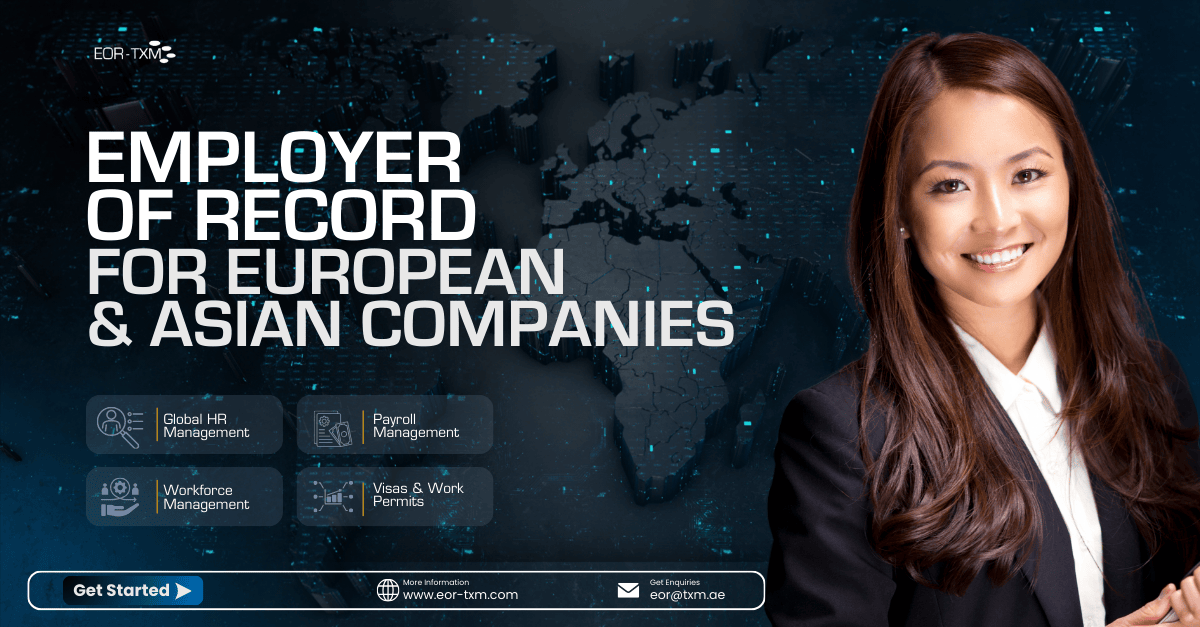
How to Hire and Pay Employees in the Middle East from Asia, Europe, and China
As companies increasingly go global, the Middle East has become a key region for expansion due to its rapid economic growth, diverse workforce, and strategic location. Businesses from Asia, Europe, and China are now hiring and managing employees in Middle Eastern countries like the UAE, Saudi Arabia, and Qatar. However, navigating the hiring and payroll processes across borders can be challenging. This guide breaks down the steps to help you hire and pay employees in the Middle East with ease and compliance.
Understanding Local Labor Laws
Every country in the Middle East has its own set of labor laws and requirements that govern employment, payroll, and worker rights. For example, the UAE has strict rules around employment contracts, end-of-service benefits, and visa sponsorships, while Saudi Arabia emphasizes Saudization (the policy of increasing employment for Saudi nationals). It’s essential to familiarize yourself with these regulations or work with a local expert to ensure compliance.
Key Points to Consider:
Employment Contracts: Contracts often need to be in both English and Arabic, and they must meet local labor standards.
Work Permits & Visas: Employers are typically required to sponsor visas and work permits for foreign workers.
Termination Policies: Middle Eastern labor laws often require severance or end-of-service payments.
Choosing the Right Employment Model
To hire employees in the Middle East, you can choose between several employment models depending on your company’s needs and the level of control you want over the workforce.
Direct Hiring: For full control over the hiring process, you can establish a legal entity in the country where you’re hiring. This approach can be costly and requires local expertise in labor law compliance, payroll, and tax regulations.
Employer of Record (EOR) Services: If you want to hire employees without setting up a legal entity, an EOR can manage employment and compliance on your behalf. This model allows you to enter the market more quickly and reduces the risks of non-compliance.
Freelancers and Contractors: For specific projects, you might consider hiring freelancers or independent contractors, though it’s important to understand how local laws differentiate contractors from full-time employees to avoid legal issues.
Setting Up Payroll and Benefits
Once your team is in place, you’ll need to set up payroll and provide legally required benefits. Each country in the Middle East has unique payroll and benefits requirements.
Payroll Requirements:
Wage Protection System (WPS): Countries like the UAE and Saudi Arabia mandate the WPS, which ensures that employee salaries are paid electronically on time.
Currency Considerations: While many companies prefer to pay in the local currency, some employees from Asia, Europe, or China may request payment in their home currency. Choose a payroll provider that can handle multiple currencies if needed.
Tax Compliance: While there is no personal income tax in the UAE or Saudi Arabia, businesses may need to comply with other tax obligations like VAT.
Employee Benefits:
Health Insurance: Health insurance is mandatory in many Middle Eastern countries, including the UAE and Saudi Arabia. Employers are typically required to provide coverage for employees and, in some cases, their dependents.
End-of-Service Benefits: Many Middle Eastern countries mandate end-of-service gratuities, which are lump-sum payments given to employees when they leave the company.
Choosing a Payment Solution
When paying employees across borders, choose a solution that simplifies international payroll and ensures accurate, on-time payments.
Global Payroll Providers: Partnering with a global payroll provider can streamline the process by handling currency conversion, tax deductions, and compliance.
Employer of Record Services: An EOR can also manage payroll, handling all aspects of employee compensation, including local tax compliance and benefits.
Direct Bank Transfers: For companies with a smaller team, direct bank transfers might be a simpler approach, but they can incur higher fees and are generally less efficient for large payrolls.
Managing Cultural and Communication Differences
Hiring employees from different cultural backgrounds requires sensitivity to cultural differences in communication, work style, and expectations. Being aware of local customs and business etiquette can improve your team’s integration and effectiveness.
Tips for Effective Cross-Cultural Collaboration:
Regular Communication: Set up regular meetings to ensure clear, consistent communication.
Respect for Local Customs: Understanding regional holidays, customs, and workweek variations (e.g., Sunday-Thursday workweek in some Middle Eastern countries) can help you establish a more inclusive workplace.
Language Support: Providing materials in both English and Arabic, when possible, can reduce misunderstandings and show respect for local culture.
Working with Local Experts like TXM
Hiring and paying employees in the Middle East from Asia, Europe, or China can open new doors for business growth, but it requires a well-planned approach. By understanding the local labor laws, choosing the right employment model, setting up compliant payroll, and working with the right partners, you can expand confidently into this vibrant region.
For companies looking to simplify the process, TXM Employer of Record (EOR) Services offers a seamless solution. Our EOR team handles all aspects of hiring, payroll, compliance, and visa sponsorship, allowing you to operate in the Middle East without the need to establish a legal entity. We ensure your business stays compliant and well-positioned for success, so you can focus on growing your team and achieving your goals.
Ready to Expand Your Workforce in the Middle East?
Connect with TXM EOR Services today and let us support your journey into the Middle East market with expertise and ease.


